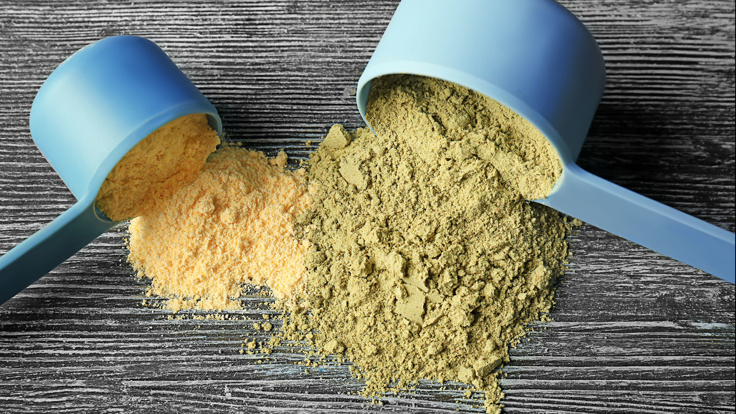Table of Contents

Animal-based protein powders generated from milk components can be replaced with plant-based protein powders. This is excellent news if you have certain food sensitivities like lactose intolerance. This is also an excellent option if you are vegan or vegetarian and don’t want to abandon the muscle-building and healing advantages of a vegan protein powder.
Protein is a necessary component of your joints, skin, muscles, and blood and is essential for the production of hormones and enzymes.
What Are the Benefits of Using a Plant-Based Protein Powder?
A team of Oxford researchers estimates that switching from animal to plant-based diets could save 8.1 million lives every year. There might be a ten per cent drop in mortality.
Food-related glasshouse gas emissions might be reduced by 70%, resulting in yearly savings totalling $1,563 billion in health-care expenses and NZ$835 billion in prevented environmental impact.
What to Look For In a Plant-Based Protein Powder?
Choosing the proper protein powder for your requirements might be challenging with such an extensive range of protein powders on the marketplace and the intimidating volumes. So, how can you pick a suitable plant-based protein powder? Read on to know more!
- Protein That Is Complete
When you think of grain protein, wheat bran, pea protein, and other plant-based proteins, you might believe they’re ideal for your strict vegetarian needs. However, keep in mind that many of these protein powders are single-source. This means they lack the 9 essential amino acids required for complete protein absorption.
Other vegetarian choices, such as chia seeds, are nutritious but lack overall protein. These nine necessary amino acids are usually found in animal-based goods such as eggs and meat, placing vegans/vegetarians and plant-based athletes at a loss.
Choose a complete protein powder that contains a combination of different plants to ensure you get all of the critical amino acids. Do not just look at the nutrition label to see how much protein each serving has. Study the ingredients carefully and search for a combination of pea, chia, and rice protein, for example.
- Amount of Protein
According to the Institute of Medicine (IOM), your daily protein consumption should be 0.8 grams per kilogram of body weight. The IOM advises that the typical inactive lady takes 46 grams of sugar per day and the average sedentary man ingests 56 grams.
- Allergens
Some vegan protein powders contain common allergens; thus, if you have any sensitivities or food allergies, study the ingredients list to avoid being exposed to any foods you might be allergic to.
Don’t eat any vegan protein powders with soy in the base if you have a soy allergy. The same is valid for pea protein, and rice protein since a tiny percentage of patients react to all these proteins, which have been widely thought to be hypoallergenic.
Taking a vegan protein powder that contains an allergen might cause nausea, gas, gastrointestinal discomfort, distension, and even diarrhoea.
Wrapping Up
Some athletes believe that vegan protein cannot reach the same body and health goals as animal-based protein. This is far from the truth.
A vegan protein powder is just as effective as whey protein powders for putting in the same effort. Don’t let someone influence your decisions otherwise. Pick the right protein powder for yourself and live a fit and healthy life.






More Stories
Navigating the World of Insurance: Road Tax Renewal with Pos Malaysia
Navigating Malaysia’s Road Tax Landscape: Pos Malaysia’s Digital Frontier
Transformative Magic Mushroom Retreat: Experience Mental and Emotional Healing with Life Synergy Retreats